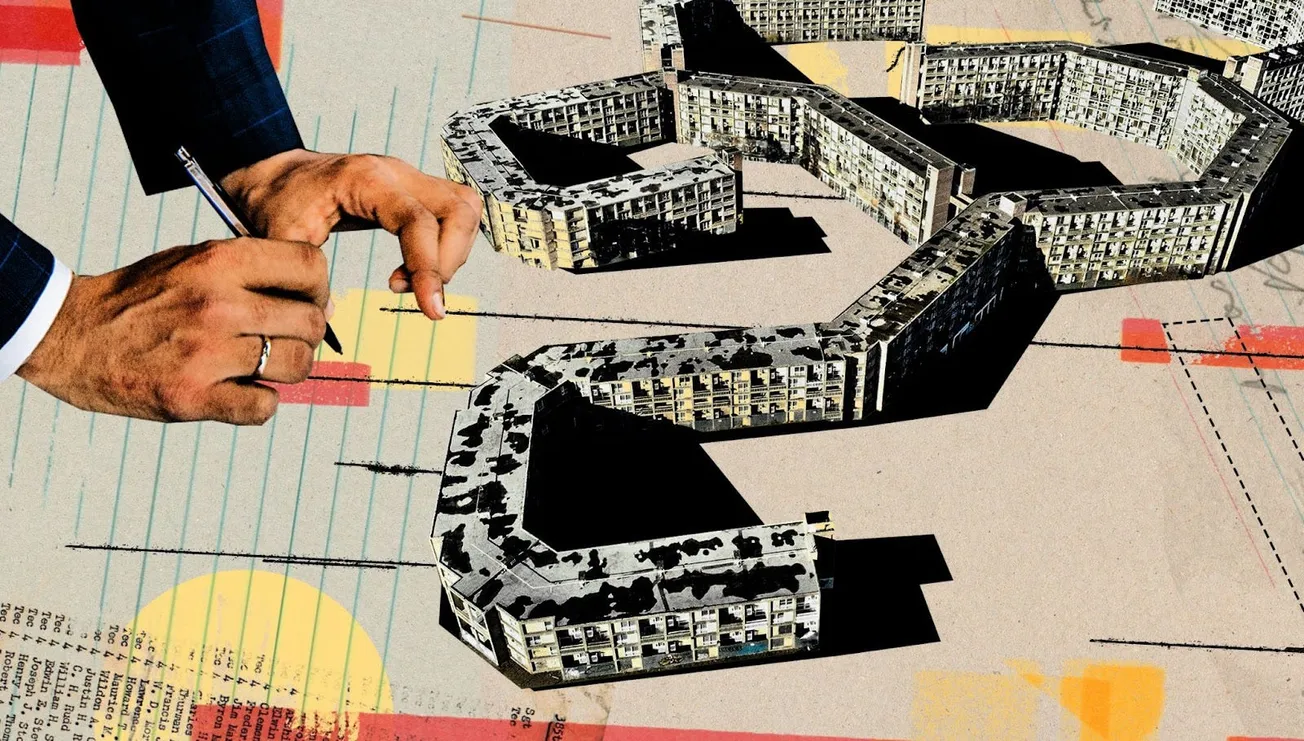In 2015, former bus driver Dave Watkins bought a two-bedroom flat in Park Hill for £117,000. If you could travel back to the 1980s and relay that information to the average Sheffield resident, they’d think he had lost his mind. In those days, the council estate was not somewhere people tended to move by choice.
But that was the old Park Hill. Dave, 64, lives in the new Park Hill, a regeneration project first dreamed up by the council in the late 1990s. The vision, granted outline planning permission in 2006, was to turn the run-down estate into a “mixed tenure development,” where a fifth of flats would remain social housing and the majority would be sold on the private market. These private flats would help pay for the refurbishment but, more importantly, they would ensure Park Hill was no longer a place where Sheffield’s poorer residents were sequestered away from the rest of society.
Dave loved this idea. “I was under the impression that Park Hill was going to be a mix of people from different socio-economic backgrounds,” he says. “I’ve always liked getting to know everyone so that mix was a big selling point for me. I thought it would be a microcosm of Sheffield.” In the first of the project’s five phases, completed in 2013, developer Urban Splash delivered the promised mix of pricey and social housing. However, when Phase 2 finished almost a decade later, it had no social housing at all. The unaffordable flats, meanwhile, are even more unaffordable: a two-bedroom recently sold for £225,000, almost double the price of Dave’s flat in Phase 1. “I don’t think a bus driver could afford that now,” he says.

There are no social rent flats in Phase 3 and, according to the plans submitted to Sheffield Council, none in the final two phases either, although Urban Splash insists it still aims to include a minimum of 20% affordable housing of some kind, “with specific numbers to be determined”. Dave wants to be charitable to the developer, which he feels “really did take a risk” on Park Hill and did a great job on the refurbishment. “But the lack of social and affordable housing is the one sour note for me,” he says. In the end, what surprises him most is that they’ve been allowed to wriggle out of it. “I thought the council had a good hand to play and more of a hold over them.”
The council certainly did once but, in the intervening years, it seemingly gave its hand away. (A council spokesperson told The Tribune that “different percentage figures for affordable housing are set to ensure schemes can be viable,” adding that developers like Urban Splash can still add more affordable homes “if they wish”.) Ultimately, this is a story about more than just one development, even if it is one of the city’s most important. It’s about Sheffield — a city which once proudly offered high-quality housing at affordable prices — allowing a developer to rework this former council estate in a way that almost entirely prices out council tenants. How much was the council willing to let Urban Splash get away with to stop the Park Hill project falling apart?
Sheffield deserves great journalism. You can help make it happen.
You're halfway there, the rest of the story is behind this paywall. Join the Tribune for full access to local news that matters, just £8.95/month.
SubscribeAlready have an account? Sign In
Comments
How to comment:
If you are already a member,
click here to sign in
and leave a comment.
If you aren't a member,
sign up here
to be able to leave a comment.
To add your photo, click here to create a profile on Gravatar.







